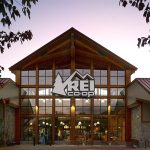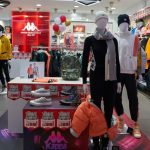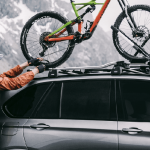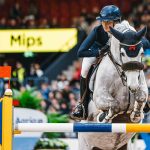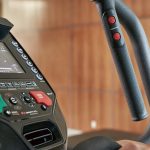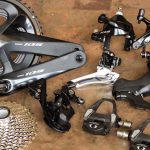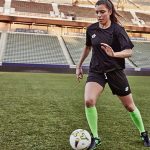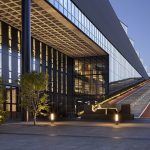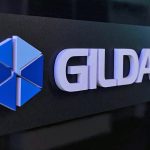Super Retail Group, the Australia-based parent of the Rebel sports, BCF outdoor and Macpac outdoor retail chains, reported that sales for the first half of fiscal 2023 rose 15 percent to A$1.96 billion, driven by strong Black Friday and peak Christmas season sales.
Comp-store sales were up 11 percent for the six-month period ended December 31. Group online sales were A$236 million, representing 12 percent of Group sales. Click & Collect sales comprised 49 percent of Group online sales.
Group gross margin was 46.2 percent, reflecting “price discipline and promotional effectiveness.”
Segment pre-tax profit was up 36 percent to A$218 million, at the top of the previously announced guidance range. Net income was up 30 percent for the H1 period to A$144 million, or 63.9 cents a share, and adjusted net income jumped 36 percent to A$154 million, or 68.0 cents per share.
“This result is a testimony to the strength of our four core brands, all of which delivered record first-half sales off the back of strong peak period trading,” expressed Group Managing Director and CEO Anthony Heraghty in a statement. “The success of our new store formats (including rebel rCX and the new BCF superstore) and our club member programs, which have added one million members in the past 12 months, have helped to deliver a strong first-half performance.”
Rebel
The Rebel retail stores segment saw total sales increase 13 percent to A$682 million in the six-month period, driven by comp store sales growth of 11 percent, reflecting higher average transaction value (ATV), driven by double-digit growth in transaction volumes.
The company said Rebel “traded strongly over the peak Christmas trading period.” December was said to be a record month delivering the highest monthly sales for Rebel. Peak sales reportedly benefitted from growth in foot traffic and higher inventory levels in seasonal categories that “were well stocked compared to the prior comparative period.”
Performance sports (basketball and football) were the strongest performing category, with the men’s Football World Cup driving strong sales growth in licensed football products.
Segment pre-tax margin improved by 100 bps reflecting a stable gross margin and an improvement in operating expenses as a percentage of sales. Segment pre-tax profit increased 23 percent to A$84 million.
Rebel’s active club membership grew by one percent and club members represented 71 percent of total sales.
Rebel saw A$107 million in online sales, representing 16 percent of total sales. Click & Collect (BIPOS) represented 34 percent of online sales.
Rebel had 155 stores at period end, including 13 rCX stores.
BCF
The BCF outdoor retail chain reported total sales increased 7 percent to A$448 million for the six-month period, driven by contributions from new stores and the expanded Townsville superstore which opened in October 2022. Comp-store sales fell by two percent for the H1 period. Transaction volumes increased but ATV declined as BCF “responded to aggressive markdown activity from competitors.”
Camping and fishing were said to be the strongest performing categories. BCF said sales from private and strategic brands represented over 49 percent of sales. Dometic, Shimano, Weber, Engel, and Yeti were some of the strongest-performing brands.
Segment pre-tax margin declined by 60 bps as lower operating expenses partly offset a 210 basis points decline in gross margin. Segment pre-tax profit of A$31 million was 1 percent lower than the prior comparative period.
BCF’s active club membership grew by 6 percent and club members represented 88 percent of total sales.
BCF’s posted online sales of A$52 million, representing 12 percent of total sales. Click & Collect (BIPOS) represented 63 percent of online sales.
BCF opened four stores and closed one store resulting in 150 stores at period-end.
Macpac
Macpac total sales increased 55 percent to A$101 million driven by comp store sales growth and new store openings. Comp-store sales increased by 69 percent in Australia and by 32 percent in New Zealand. La Niña weather conditions reportedly helped drive strong growth in insulation and wet weather apparel sales. Sales in key travel categories including backpacks, thermals and luggage benefitted from growth in outbound tourism.
Segment pre-tax margin reflected a 500 bps improvement in gross margin and higher operating leverage from record sales.
Macpac delivered segment pre-tax profit of A$16 million compared to a prior-year period loss.
Macpac’s active club membership grew by 35 percent and club members represented 74 percent of total sales.
Macpac’s online sales represented 18 percent of total sales, or A$19 million. Click & Collect (BOPIS) represented 17 percent of online sales.
Macpac opened three stores and closed one store resulting in 87 stores at period end.
Strong year-to-date sales momentum has reportedly extended into January with positive comp-store sales in each of the four core brands:
- Rebel executed a successful back-to-school promotional program;
- BCF has seen continued strength in fishing, supported by the introduction of new brands and regional ranges;
- Macpac launched an expanded summer range and is outperforming in travel-related categories; and
- Supercheap Auto is performing well in auto maintenance and do-it-yourself categories including car care, lubricants and tools
Looking ahead, Heraghty said, “Pleasingly, the strong sales momentum we saw in the first half has continued into January, with all brands trading well.”
In the fiscal year second half, the Group is targeting the opening of 18 new stores across all four core brands, plus two Rebel rCX store upgrades, which will bring the total rebel rCX store count to 15 doors.
“Low unemployment and accumulated savings are continuing to support consumer spending, however rising interest rates are expected to dampen consumer demand later in the second half,” Heraghty surmised. “We remain optimistic that the business will continue to perform throughout the economic cycle, supported by our customer base of 9.7 million active club members, the strength of our brands, ongoing network expansion and roll-out of new store formats, and our leading market positions in attractive and growing lifestyle categories.”
The Group expects to incur A$125 million of capital expenditure in FY23 to fund its store development program and investment in omni, loyalty and digital capability. Group and unallocated costs in the second half are expected to be A$26 million.

